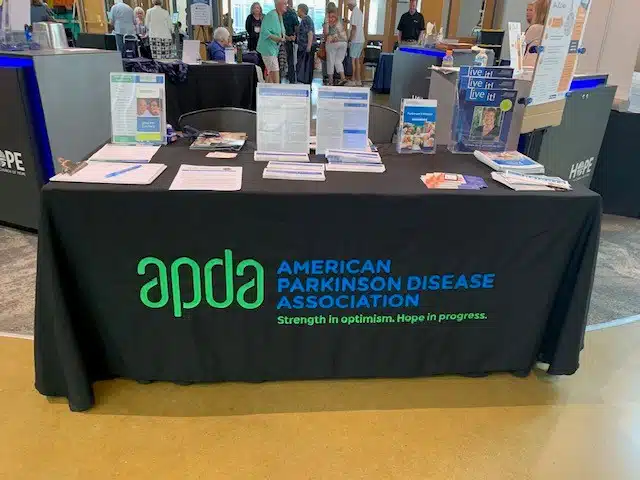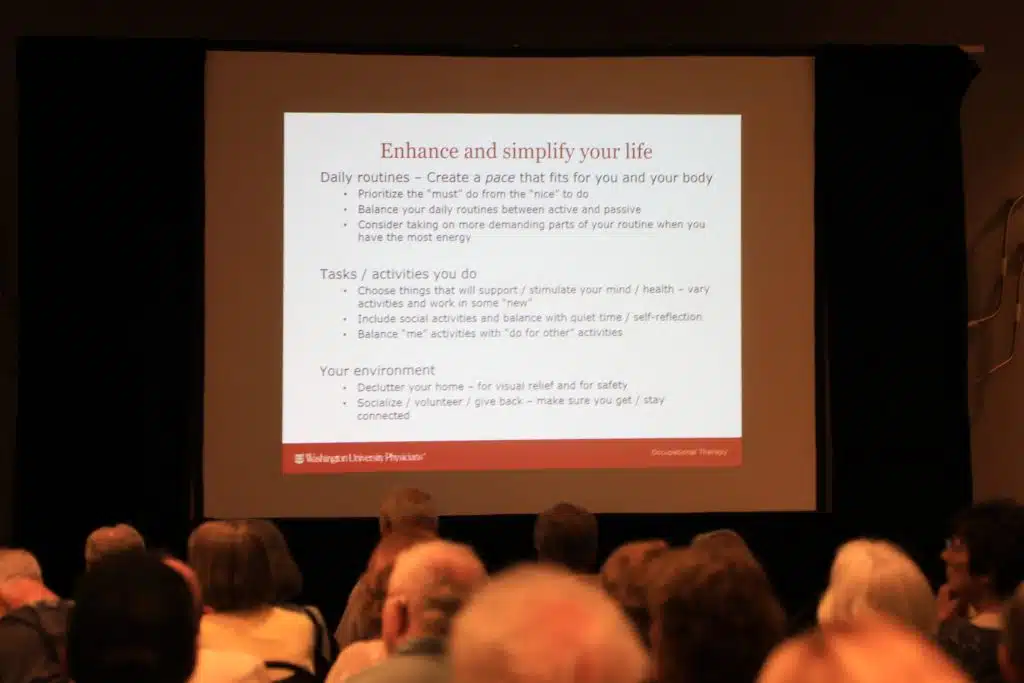Parkinson Conferences
APDA Iowa produces and participates in several Parkinson’s conferences around the state to bring you the latest information to help you live life to the fullest.
APDA Iowa Chapter Parkinson’s Conference
Friday, June 6th from 8:00 am – 4:00 pm
Parkinson Education Programs
Parkinson Education Programs (PEP) are education events hosted throughout the year by the APDA Iowa Chapter. We invite renowned speakers to address topics that are important to the Parkinson’s community.
Check back for future programs.
PRESS
Were you diagnosed with Parkinson’s in the last 5 years? Do you have questions about medication Management, dealing with physical symptoms of PD, caring for family with PD, or building your healthcare team.
Check back for information about future classes.
Archived Education Events
Navigating Medicare, Finances and Legal Matters
Aaron Peterson, AKP Insurance, Eric Peterson, Peterson Financial, and Matt Bollman, Pearson-Bollman Law discuss financial implications for people with PD, ways to pay for long term care, and understanding the legal documents you should have in place.
Click here to watch a video of the presentation.
PD 101 – May 18, 2023
If you’ve been diagnosed within the past several years, then this program is for you. You’ll get an overview of Parkinson’s disease, treatments, and helpful tips and tricks. Click here to download the slides.







